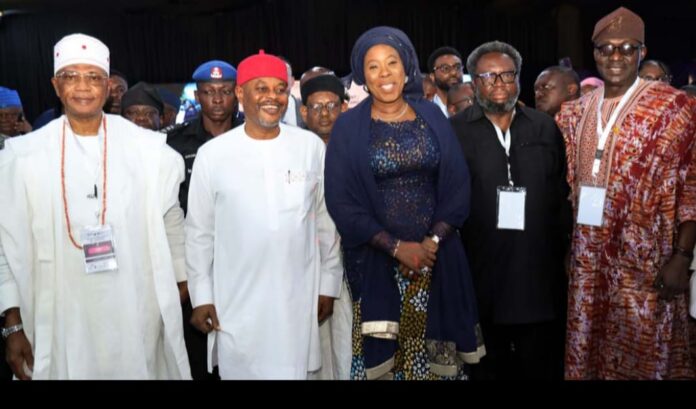The Minister of Innovation, Science and Technology, Uche Geoffrey Nnaji, has called on Nigerian manufacturers to embrace smart technologies, innovation, and strategic partnerships to boost productivity and competitiveness in the manufacturing sector.
Speaking at the 2025 Nigeria Manufacturing and Equipment/Nigerian Raw Materials (NME/NIRAM) Expo themed “Accelerating Sustainable Manufacturing through Cutting-Edge Equipment and Technology Solutions”, the minister emphasised that innovation is central to Nigeria’s economic progress and job creation.
“We must ensure every policy, investment, and innovation creates real opportunities to work together and turn plans into action,” Nnaji said. “The world is moving fast. Countries that invest in advanced technologies are growing quickly and creating jobs. We must do the same.”
He stressed the need for Nigeria to develop and add value to its raw materials before export, adding that the Ministry is supporting research and promoting the use of local technology to drive industrial development.
Nnaji also acknowledged the challenges manufacturers face—such as high costs, poor infrastructure, and limited financing—urging collaboration across government, private sector, and communities to overcome them.
President of the Manufacturers Association of Nigeria (MAN) noted that the expo was a platform for collaboration, innovation, and sustainable manufacturing practices. He called on industry players to adopt the strategies showcased at the event to boost their global competitiveness and meet local demand.
Commissioner for Trade, Folashade, highlighted the need to harness innovation and technology to build a resilient manufacturing sector capable of addressing Nigeria’s economic challenges. She described the expo as a national opportunity to chart a new path for industrial excellence.
Director General of the Raw Materials Research and Development Council (RMRDC), Prof. Nnayelugo Ike-Muonso, said over 70% of manufacturing inputs in Nigeria are still imported, a structural weakness the country must correct. “We export raw and import refined, exporting jobs and value,” he said. “What we lack is not potential, but strategic coordination, bold implementation, and technology-backed commitment.”
According to Ike-Muonso, the RMRDC is leading efforts to reverse this trend, including commissioning a new Research and Demonstration Plant and pushing fiscal incentives for companies using local raw materials. Under new government-approved guidelines, manufacturers who use and develop local inputs will benefit from tax credits, duty reliefs, investment allowances, and excise waivers.
“This is not policy tinkering,” he added. “It is fiscal affirmation that the smartest supply chain is one built from the ground up, right here in Nigeria.”
He outlined a vision for the next five years: reducing foreign raw material imports by 60%, incentivising value addition, building industrial hubs around key resource zones, and deepening research-industry ties.
Director General of MAN, Segun Ajayi-Kadir, also stressed the importance of adopting modern technologies and sustainable practices. “We must not only compete locally but globally,” he said, calling for industry-wide collaboration to localize technology and raw material sourcing.
He urged Nigerian manufacturers to use the expo as a springboard to transform the industry and drive inclusive economic growth.














